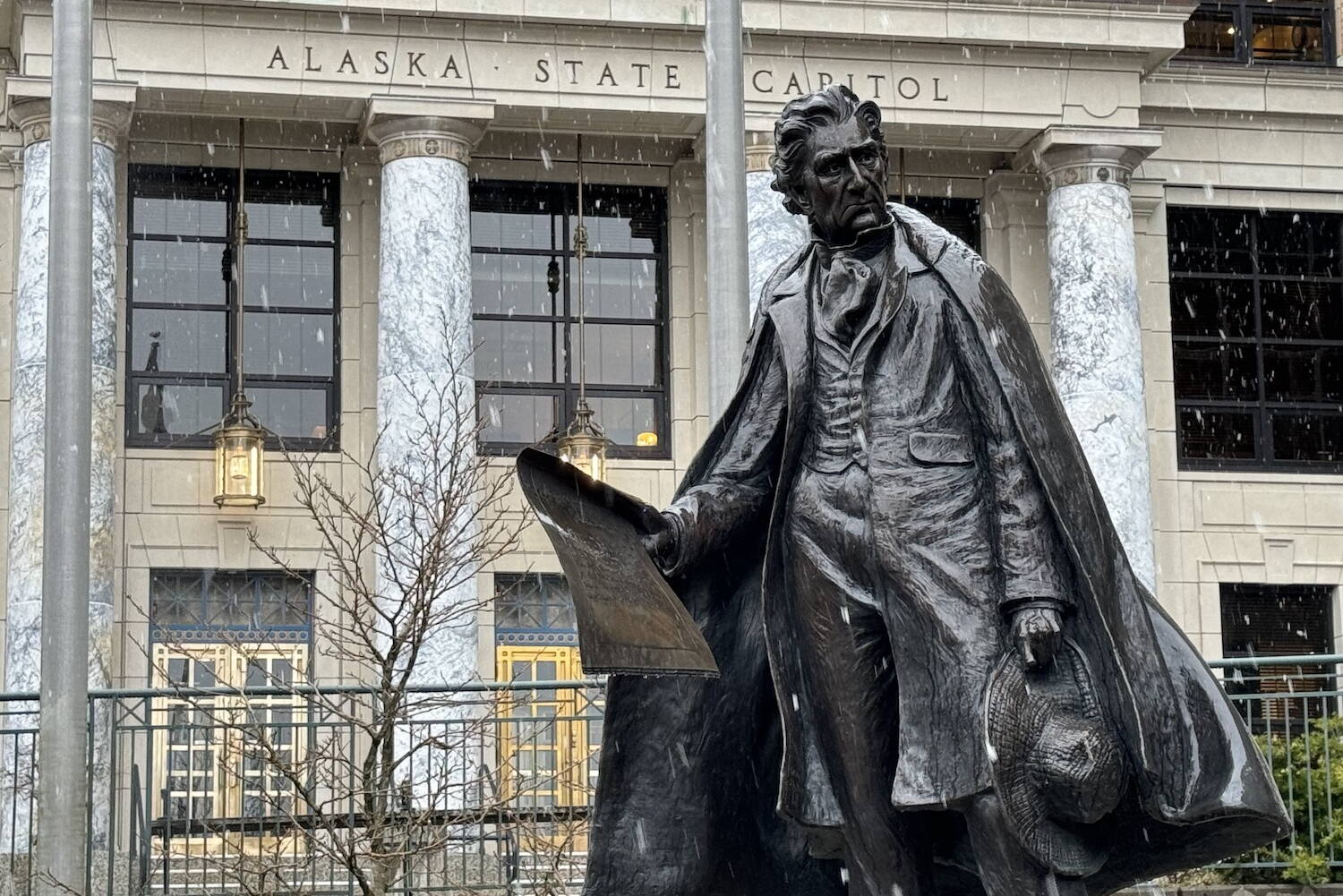Last year, when Gov. Mike Dunleavy proposed legislation last year to allow companies to inject carbon dioxide deep underground, he billed it as a way for the state to raise money while helping fight climate change.
Now, with the Alaska House of Representatives prepared to vote Wednesday on House Bill 50, the goals have shifted: Revenue-raising provisions have been stripped out, and backers now say it’s a way to increase oil production and burn more coal while cutting emissions of carbon dioxide, a leading greenhouse gas.
“We have a lot of companies that — their bottom line is trying to be carbon-neutral in whatever they do. So we don’t we definitely don’t want to stop those companies from investing in our state,” said Rep. Mike Cronk, R-Tok and a supporter of the bill.
In Alaska, mineral rights are generally owned by the state. Carbon storage, or carbon sequestration, involves capturing carbon dioxide and injecting it thousands of feet underground, in what’s known as “pore space.”
HB 50 would set rules for industrial plants that collect carbon dioxide from a particular source — such as a coal-fired power plant — and inject it into the space. Because the state owns the pore space, it has the right to charge companies for using it.
“Who would have thought a few years ago that a state resource would be pore space?” said Rep. Donna Mears, D-Anchorage.
Other countries have imposed carbon caps or taxes on carbon emissions, and publicly owned companies are facing pressure to reduce the amount of carbon dioxide they produce. A growing number of corporations are making “net-zero” pledges, promising to balance their emissions with other acts, such as carbon sequestration, that reduce the amount of carbon dioxide in the atmosphere.
Australia-based oil and gas firm Santos, for example, has set an international goal to be net zero by 2040. Santos is developing the Pikka oil project on Alaska’s North Slope.
“It’s forward-thinking,” said Rep. DeLena Johnson, R-Palmer, of HB 50. “There’s been some constraints on national and international banking rules as far as providing funding for Arctic projects, and this is an attempt to alleviate some of the concerns that folks have about resource development.”
Carbon sequestration remains in limited use, but states — particularly oil-producing ones — are racing to set rules and take advantage of large federal tax incentives.
Taxes and royalties from oil production are Alaska’s second-largest source of general-purpose revenue, and even Democrats in the state Legislature vote favorably on measures supporting additional drilling.
When it comes to the carbon sequestration, the biggest objections haven’t been about climate concerns but about state revenue. As the bill advanced, lawmakers removed language requiring minimum payments in exchange for carbon injections.
Now, the bill says the commissioner of the Department of Natural Resources will determine the financial terms of any carbon deal, possibly down to zero.
“It’s a little unclear what the monetary values are going to be,” said Rep. Will Stapp, R-Fairbanks and a supporter of the bill.
John Crowther, deputy commissioner of the Department of Natural Resources, said sections of the bill imply that the commissioner will impose — through regulation — fees that pay for that department’s costs.
The Department of Environmental Conservation said in hearings that it will absorb additional work through its existing budget.
Officials for the Alaska Oil and Gas Conservation Commission, in charge of part of the project, said they believe formulas within the bill will pay for their costs.
Asked whether he believes the carbon bill will be revenue-neutral, Cronk said he’s not sure.
“I hope so. I don’t know,” Cronk said. “When you put anything new in place, when things need to be adjusted, we can adjust it as things progress. So we all have to keep an open mind on that.”
On the House floor on Monday, Mears unsuccessfully offered an amendment that would have required a minimum 4% royalty for carbon injections, something that would have given the state guaranteed revenue if the program advances.
“(The bill) is being supported by the industry so that investment is more favorable. Which is fine, but … for goodness sakes, this is a way to make the industry more money, and 4% is a pretty low bar,” she said afterward. “Where’s our share? That’s our responsibility.”
Mears’ proposal was defeated by a 24-15 vote, as was an amendment from Rep. Andy Josephson, D-Anchorage, that would have limited carbon injections to only places where oil and gas development is already permitted.
Under the current language of the bill, carbon wells would be allowed on almost all state land, with exceptions for things like parks.
Looking into the future, proponents say they’re optimistic that successful carbon storage programs could make unpopular energy solutions more popular.
Stapp is carrying the bill on the House floor for a vote scheduled Wednesday morning.
Coal has traditionally been the cheapest source of electricity in his Interior town, but coal is rapidly being phased out as a power source in the United States because of the pollution it causes.
If carbon sequestration can deal with that problem, “I don’t know why anyone would not want to build a coal plant, if it’s net zero,” Stapp said.
“You could have a system in which you could have coal power that does not have any emissions. I tend to believe that would be kind of amazing for Alaska, given its abundance of an easily accessible supply of coal,” he said.
• James Brooks is a longtime Alaska reporter, having previously worked at the Anchorage Daily News, Juneau Empire, Kodiak Mirror and Fairbanks Daily News-Miner. This article originally appeared online at alaskabeacon.com. Alaska Beacon, an affiliate of States Newsroom, is an independent, nonpartisan news organization focused on connecting Alaskans to their state government.

